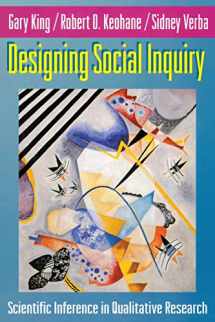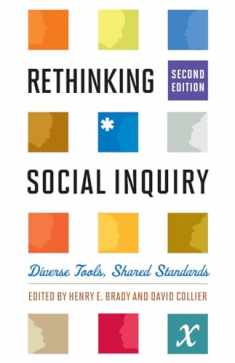
Designing Social Inquiry: Scientific Inference in Qualitative Research
Book details
Summary
Description
While heated arguments between practitioners of qualitative and quantitative research have begun to test the very integrity of the social sciences, Gary King, Robert Keohane, and Sidney Verba have produced a farsighted and timely book that promises to sharpen and strengthen a wide range of research performed in this field. These leading scholars, each representing diverse academic traditions, have developed a unified approach to valid descriptive and causal inference in qualitative research, where numerical measurement is either impossible or undesirable. Their book demonstrates that the same logic of inference underlies both good quantitative and good qualitative research designs, and their approach applies equally to each.
Providing precepts intended to stimulate and discipline thought, the authors explore issues related to framing research questions, measuring the accuracy of data and uncertainty of empirical inferences, discovering causal effects, and generally improving qualitative research. Among the specific topics they address are interpretation and inference, comparative case studies, constructing causal theories, dependent and explanatory variables, the limits of random selection, selection bias, and errors in measurement. Mathematical notation is occasionally used to clarify concepts, but no prior knowledge of mathematics or statistics is assumed. The unified logic of inference that this book explicates will be enormously useful to qualitative researchers of all traditions and substantive fields.


We would LOVE it if you could help us and other readers by reviewing the book
Book review





